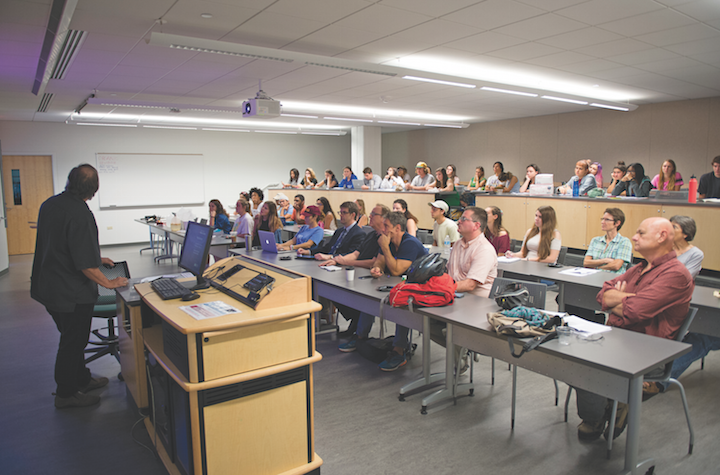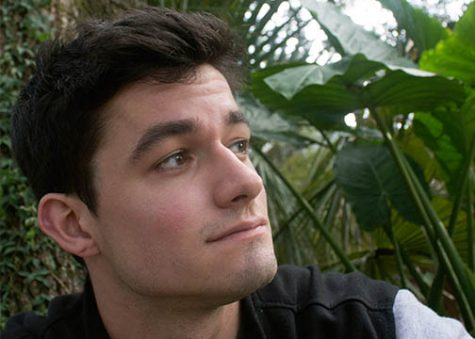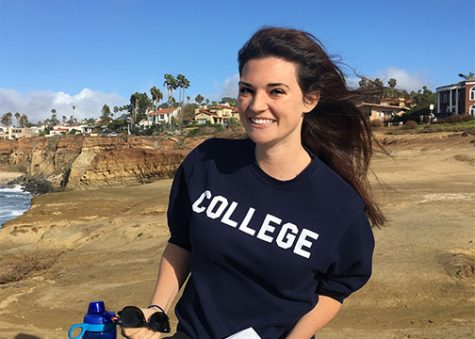Loyola’s Environmental Roundtable tackles climate change denial
Loyola’s Environmental Roundtable meets in Monroe Hall to discuss issues. The discussion covered a range of pressing matters in the environmental sphere.
January 23, 2017
Due in part to polarizing opinions of climate change in the current political landscape, the Loyola Environment Program is addressing climate change denial as a key part of their roundtable discussions.
The Environmental Roundtable is a forum that provides a platform for students and faculty to present ideas about addressing environmental concerns.
The discussions are structured so that each chief member is given thirty or forty minutes to introduce their topic and define their stances and platforms.
David White, professor of Biological Sciences, is a strong advocate for the influence of fact-based science, and in his curated roundtable, he addressed the social causes for environmental neglect.
“In recent decades, there has been a concentrated effort in this country with people who have agendas—political, economic, business—to put out a lot of false information that can simply be defined as denialism. Denialism is wanton disregard for information that is contrary to someone’s belief systems,” White said.
Olivia Wells, visual art senior, has attended the previous roundtables, and believes the biggest opponent of fact-based science is sheer denial.
“I believe that climate change is caused by industrialization and anthropocentrism. I’ve talked to people that believe climate scientists solely publish biased, falsified statistics for personal gain, but the vast majority of scientists agree that there is real evidence behind humans impacting climate change.” Wells said.
Bob Thomas, director for Loyola’s Center for Environmental Communications, is viewing Donald Trump’s nominee for the Environmental Protection Agency, Scott Pruitt, with cautious stoicism. Pruitt has long been a climate change skeptic.
“Anything that I say right now about our Pruitt and his environmental impact right now is speculation. He’s said a lot of things that have upset environmental advocates, but he also changes his mind on a whim, so we’re waiting on pins and needles to see what happens,” Thomas said.
Thomas is referring to Scott Pruitt’s confirmation hearing Jan. 18 where he contradicted Trump’s sheer denial of climate change by mentioning that humans are probably involved with the impact, but not to what extent.
“One of the encouraging things is that climate change skeptics Trump has nominated have shifted their stances when they testified, and it gives me hope,” Thomas said.
The roundtable members have agreed that time will tell what this schism in climate rhetoric will mean for the environmental community.
“How far is he willing to go with it and will it satisfy me? I don’t know, but I’m watching it with great trepidation,” Thomas said.
White recanted that the science is self-explanatory, and what it means is not be ignored.
“Climate change isn’t just the biggest problem environmentalists are facing right now, it’s the biggest problem the world is facing right now,” White said.









